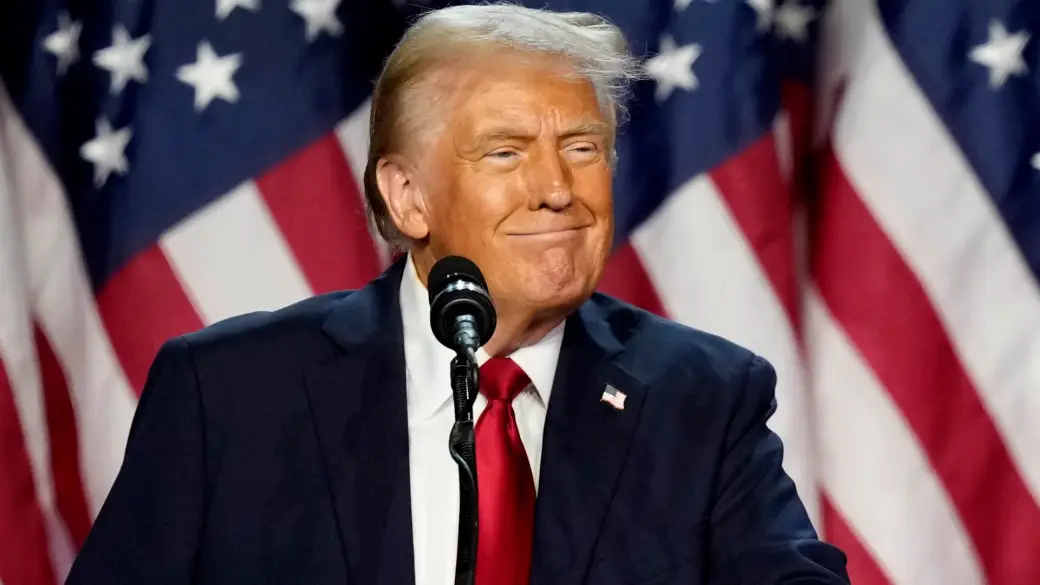Here’s How U.S. Presidential Term Limits Work as Trump Prepares for Return
As Donald Trump prepares to return to the Oval Office following his re-election to a second non-consecutive term, some Americans have taken to social media to question whether he could run again in 2028. The answer is straightforward: No.
The 22nd Amendment Explained
Under the 22nd Amendment of the U.S. Constitution, ratified in 1951, no president can serve more than two terms, and these terms do not have to be consecutive. The amendment states:
“No person shall be elected to the office of the President more than twice, and no person who has held the office of President, or acted as President, for more than two years of a term to which some other person was elected President shall be elected to the office of President more than once.”
This means that Trump cannot run again in four years. If circumstances arise that require vice president-elect JD Vance to assume the presidency before January 2027, he could only run once more in 2028. However, if Vance were to take over after Trump completes two years of his presidency, he would then be eligible to run in both 2028 and 2032.
Expert Insights
Michael McConnell, a former U.S. circuit judge and director of the Constitutional Law Center at Stanford University, clarified, “It prohibits anyone from being elected president more than two times. Donald Trump was elected in 2016, and he was elected again recently; he cannot be elected a third time.” He reassured that there is no need for concern over this issue, stating, “I think there are just a lot of people running around panicking.”
Historical Context of Term Limits
Historically, Franklin D. Roosevelt served four terms as president, from 1932 until his death in 1945. His extended presidency prompted concerns about executive overreach, leading to the adoption of the 22nd Amendment. This change was implemented to prevent any future president from serving more than two terms, addressing fears of concentrated power in the executive branch.
Potential for Constitutional Amendments
While Trump has not indicated a desire to remain in office indefinitely—stating in a recent press conference that he “would think so” regarding 2024 being his last election—some on social media have speculated about the possibility of removing the third-term restriction. Supporters, including Colorado Republican Lauren Boebert, have suggested rallying behind Trump to secure a third term.
However, changing the 22nd Amendment would face significant hurdles. Amending or repealing the Constitution requires two-thirds approval from both houses of Congress and ratification by three-fourths of state legislatures. Currently, with Democrats holding at least 46 seats in the Senate and having won at least 190 seats in the House, achieving a two-thirds majority is improbable.
Expert Opinions on Amendment Possibilities
McConnell expressed skepticism about the seriousness of proposals to amend the Constitution, viewing them as more of a political ploy than a viable plan. He noted, “It’s all totally silly,” and that discussions surrounding amending the Constitution often serve as a way to provoke reactions from the opposing side rather than genuine legislative intent.
Over the years, various presidents from both parties have suggested changes to the term limit rule. For instance, former Democratic President Harry Truman criticized the amendment as “stupid,” while Republican President Ronald Reagan expressed a desire to repeal it before leaving office. Since the amendment’s ratification, Congress has seen numerous attempts to repeal it, with 54 joint resolutions introduced since 1956.
Conclusion
As Trump prepares for his upcoming term, the question of a potential third run in 2028 remains firmly rooted in constitutional limits. While social media may buzz with speculation and proposals for change, the likelihood of altering the 22nd Amendment is slim. The established rules governing presidential terms remain steadfast, ensuring that Trump’s return to the White House does not pave the way for a third consecutive candidacy.
Thank you for taking the time to read this article! Your thoughts and feedback are incredibly valuable to me. What do you think about the topics discussed? Please share your insights in the comments section below, as your input helps me create even better content.
I’m also eager to hear your stories! If you have a special experience, a unique story, or interesting anecdotes from your life or surroundings, please send them to me at whatsissue@gmail.com. Your stories could inspire others and add depth to our discussions.
If you enjoyed this post and want to stay updated with more informative and engaging articles, don’t forget to hit the subscribe button! I’m committed to bringing you the latest insights and trends, so stay tuned for upcoming posts.
Wishing you a wonderful day ahead, and I look forward to connecting with you in the comments and reading your stories!
